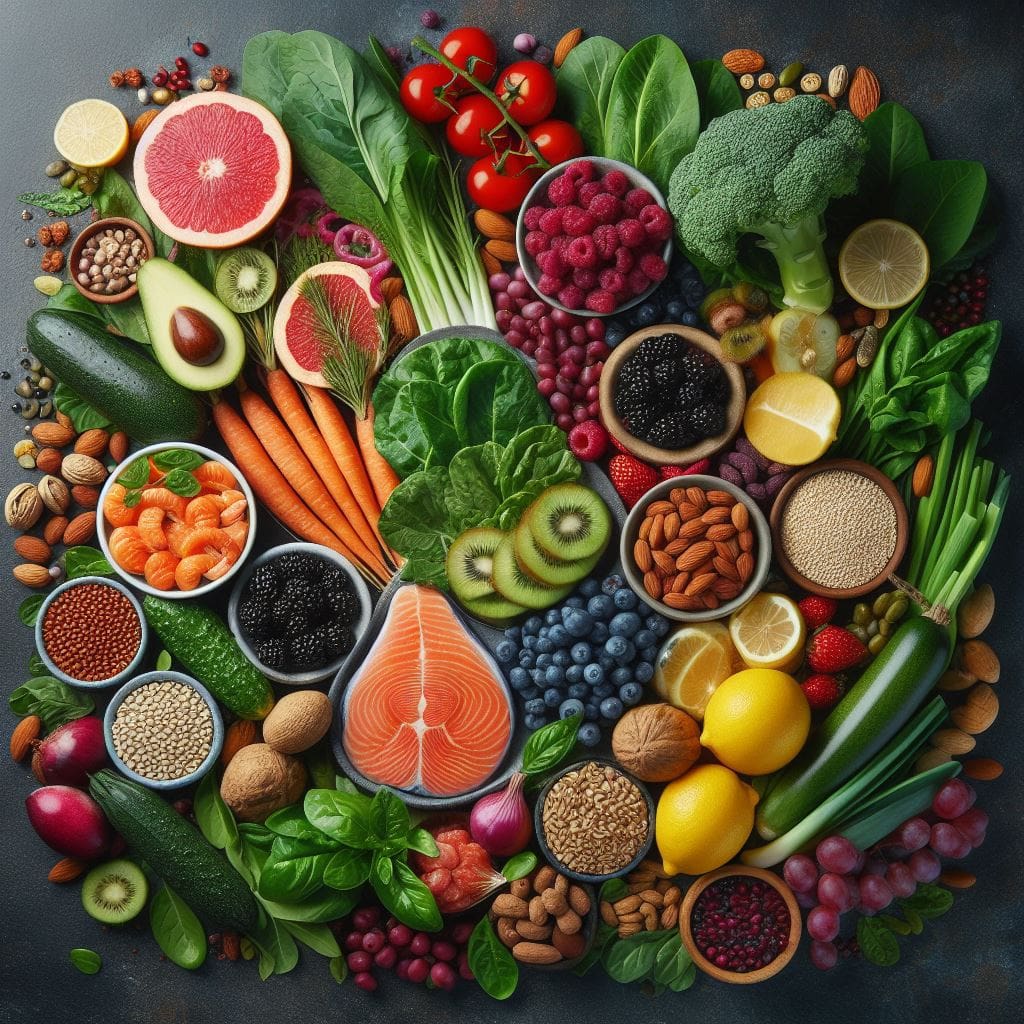
Are you frequently feeling tired or low on energy and struggling to get through the day? If so, you might be wondering what you can do to boost your energy levels.
The answer might be simpler than you think: eating a balanced diet that includes nutrient-dense foods can help increase your energy levels and leave you feeling more lively and alert, ready to tackle whatever comes your way.
The following article will delve into how specific foods can provide your body with the necessary components to produce more energy.
The Importance of Energy Levels in Daily Life
Energy is the fuel that powers our bodies and enables us to perform daily tasks. Whether it’s tackling work projects, staying focused during workouts, or simply enjoying quality time with loved ones, having optimal energy levels is crucial.
When our energy levels are low, we often find ourselves struggling to concentrate, lacking motivation, and feeling drained both mentally and physically.
Understanding Nutrient-Dense Foods
Nutrient-dense foods are packed with vitamins, minerals, and other essential nutrients that support your body’s energy-producing mechanisms.

Unlike empty-calorie foods that provide little nutritional value, nutrient-dense foods provide your body with the necessary building blocks it needs to function optimally.
These foods are typically low in added sugars and unhealthy fats, making them a healthier choice for your overall well-being.
Benefits of Consuming Nutrient-Dense Foods
Incorporating nutrient-dense foods into your diet can offer a wide range of benefits beyond just boosting your energy levels.
These foods help regulate your blood sugar levels, enhance your metabolism, improve your digestion, and support a healthy immune system.
They also provide antioxidants that protect your body against oxidative stress and inflammation, which can contribute to fatigue and low energy.
Additionally, nutrient-dense foods can help maintain a healthy weight, reduce the risk of chronic diseases like heart disease and diabetes, and improve cognitive function.
By nourishing your body with these foods, you’re not only increasing your energy levels, but also investing in your long-term health and well-being.
Key Nutrients for Boosting Energy Levels
Certain nutrients play a crucial role in energy production within the body. Including foods rich in these key nutrients can help optimize your energy levels. Here are some essential nutrients to focus on:
1. Iron
Iron is essential for transporting oxygen throughout the body. Low iron levels can lead to fatigue and decreased energy. Incorporate iron-rich foods such as lean meats, beans, lentils, and leafy greens into your diet to support healthy energy levels.
2. B Vitamins
B vitamins, including B12, B6, and folate, are involved in converting food into energy. These vitamins help your body produce red blood cells and maintain a healthy nervous system. Sources of B vitamins include whole grains, legumes, nuts, seeds, and dark leafy greens.
3. Magnesium
Magnesium is involved in over 300 biochemical reactions in the body, including energy production. It helps convert food into energy and supports muscle and nerve function.
Good sources of magnesium include nuts, seeds, whole grains, leafy greens, and legumes.
4. Omega-3 Fatty Acids
Omega-3 fatty acids play a role in brain health and can help improve cognitive function and mood, which are essential for maintaining energy levels.
Include fatty fish, flaxseeds, chia seeds, and walnuts in your diet to boost your omega-3 intake.
5. Vitamin C
Vitamin C is an antioxidant that helps protect against oxidative stress and supports the immune system. It also aids in iron absorption, which is crucial for energy production.
Citrus fruits, berries, kiwis, and bell peppers are excellent sources of vitamin C.
Top Nutrient-Dense Foods to Include in Your Diet
Now that you understand the importance of nutrient-dense foods and the key nutrients for boosting energy levels, let’s explore some of the top foods you should include in your diet:
1. Leafy Greens
Leafy greens like spinach, kale, and Swiss chard are packed with vitamins, minerals, and fiber. They are rich in iron, magnesium, and B vitamins, making them an excellent choice for boosting energy levels.
2. Whole Grains
Whole grains, such as quinoa, brown rice, and oats, are complex carbohydrates that provide a steady release of energy. They are also rich in B vitamins and fibre, which help regulate blood sugar levels and keep you feeling energized throughout the day.
3. Nuts and Seeds
Nuts and seeds like almonds, walnuts, chia seeds, and flaxseeds are nutrient powerhouses. They are rich in healthy fats, protein, fibre, and key nutrients like magnesium and omega-3 fatty acids, all of which contribute to sustained energy levels.
4. Lean Proteins
Lean proteins such as chicken, turkey, fish, tofu, and legumes are essential for energy production. They provide amino acids that support muscle growth and repair, helping to maintain overall energy levels.
5. Berries
Berries like blueberries, strawberries, and raspberries are packed with antioxidants, fiber, and vitamin C. They provide a natural energy boost while also protecting against cellular damage.
Incorporating these nutrient-dense foods into your diet can help optimize your energy levels and overall well-being.
Lifestyle Factors That Can Affect Energy Levels
While nutrient-dense foods play a significant role in boosting energy levels, it’s important to address other lifestyle factors that can impact your overall energy. Here are a few key factors to consider:
1. Hydration
Dehydration can lead to fatigue and decreased energy levels. Make sure to drink enough water throughout the day to stay properly hydrated.
2. Sleep
A lack of quality sleep can leave you feeling drained and fatigued. Aim for 7-8 hours of uninterrupted sleep each night to recharge your body and support optimal energy levels.
3. Stress Management
Chronic stress can deplete your energy reserves. Find healthy ways to manage stress, such as practising mindfulness, engaging in regular exercise, or seeking support from a therapist or counsellor.
4. Regular Exercise
Physical activity has been shown to boost energy levels and improve overall well-being. Aim for at least 150 minutes of moderate-intensity exercise per week to reap the benefits.
5. Limiting Caffeine and Alcohol
While caffeine and alcohol may provide temporary energy boosts, excessive consumption can disrupt sleep patterns and lead to energy crashes.
Use them in moderation and be mindful of how they affect your energy levels.
By addressing these lifestyle factors and incorporating nutrient-dense foods into your diet, you’ll be well on your way to maintaining optimal energy levels throughout the day.
Other Strategies for Boosting Energy Levels
In addition to incorporating nutrient-dense foods and addressing lifestyle factors, there are other strategies you can implement to further boost your energy levels:
- Stay active throughout the day by taking short movement breaks or stretching at regular intervals. This can help prevent energy slumps and improve circulation.
- Practice deep breathing exercises or meditation to help increase oxygen flow to your brain and promote relaxation.
- Avoid skipping meals or going long periods without eating. Fueling your body with regular, balanced meals and snacks will provide a steady source of energy.
- Consider incorporating adaptogenic herbs and supplements like ginseng, ashwagandha, and cordyceps into your routine. These natural remedies have been used for centuries to support energy and vitality.
Remember, everyone’s energy needs are unique, so it’s essential to listen to your body and make adjustments as needed.
Finding the right balance of nutrient-dense foods, lifestyle choices, and self-care practices will help you optimize your energy levels and feel your best.
Taking Charge of Your Energy Levels with Nutrient-Dense Foods
Boosting your energy levels starts with nourishing your body with the right ingredients. By incorporating nutrient-dense foods into your diet, you can provide your body with the necessary nutrients to generate more energy.
Remember to focus on key nutrients like iron, B vitamins, magnesium, omega-3 fatty acids, and vitamin C, which play a crucial role in energy production. By including these nutrient-dense foods in your meals and snacks, you’ll not only boost your energy levels but also support your overall well-being.
By adopting healthy habits and implementing other strategies like staying active, practising deep breathing, and considering adaptogenic herbs, you can further enhance your energy levels.
You can increase your energy levels and productivity by implementing some easy dietary changes and making mindful decisions that benefit your overall health.
Your body will thank you with sustained energy, vitality, and a renewed zest for life.



